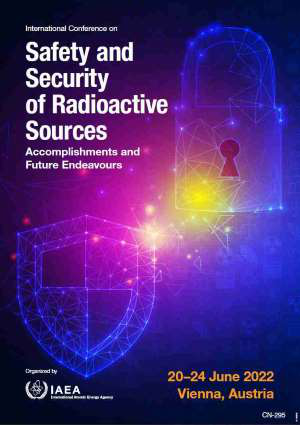Speaker
Description
Abstract
It is of a great concern to countries regarding Illicit trafficking of radioactive sources across country’s borders; this has become a problem from radiological hazard point of view. The regulations and procedures set to ensure the control of radioactive sources is to prevent and detect illicit trafficking of radioactive sources. Preventive and detective measures should be taken into consideration in ensuring that radioactive sources do not become the subject of unauthorized use leading to illicit trafficking. The following measures should be adopted to achieve the goals of prevention and detection of illicit trafficking of radioactive materials. The measures are accounting for, control of radioactive sources and physical protection of such materials should be adopted. Act 895 of the Republic of Ghana which establishes the Nuclear Regulatory Authority (NRA) as an independent regulatory body has the duty to control all activities using radioactive materials. The NRA is mandated to provide regulations and guides to control activities and practices involving peaceful use of radioactive materials to ensure protection of persons and the environment against the harmful effects of radiation hazards. To achieve the goal of ensuring adequate protection of the public health and the environment in the peaceful uses of radioactive materials in Ghana, the following principal regulatory functions are considered, these are; establish regulations and guides, issuance of authorization, inspection of facilities, import and export control, maintaining effective inventory accounting and controls and training of frontline officers and other security agencies. Establishing regulations and guides defines the capabilities and activities that need to be satisfied by facility operators to protect against theft which could lead to illicit trafficking. An individual or organization intending to utilize radioactive materials shall apply for and obtain license from the nuclear regulatory authority. The NRA staff reviews the submittals to ensure that the applicant's assumptions are technically correct that the proposed activities will not adversely affect the environment. Any utilization of radioactive sources shall maintain physical protection program or security plans to prevent unauthorized access or illegal transfer. Authorization is granted if all criteria for physical protection for radioactive sources and facilities are met. Another component of the regulatory function is inspection. To ensure that licensees comply with NRA’s regulations and the conditions of their licenses, NRA periodically inspects licensed facilities. Inspections can be announced or unannounced, and varies in scope and frequency according to the authorized activities. Some illicit trafficking of radioactive sources can be detected during inspections. This detection leads to prompt information to NRA in order to reclaim lost material and to inform the public of any potential dangers. Security in the import and export of radioactive materials is further guaranteed by a close working relationship between the NRA and Customs Division of Ghana to inspect the radioactive sources before it is exported or when it is imported. The NRA has also put in place a system of effective inventory, accounting and controls of radioactive materials called the Regulatory Authority Information System (RAIS) to improve the control of radioactive materials and to provide information concerning their actual location at any time. To ensure prevention and detection of illicit trafficking of radioactive sources across borders, the NRA closely co-operate with Customs by providing them with pagers and identifinders which was donated by IAEA. The NRA occasionally provides training for frontline officers and other security agencies on the use of detection instruments and how to communicate such incidents if a radioactive source is detected.
| Country OR Intl. Organization | Ghana |
|---|

